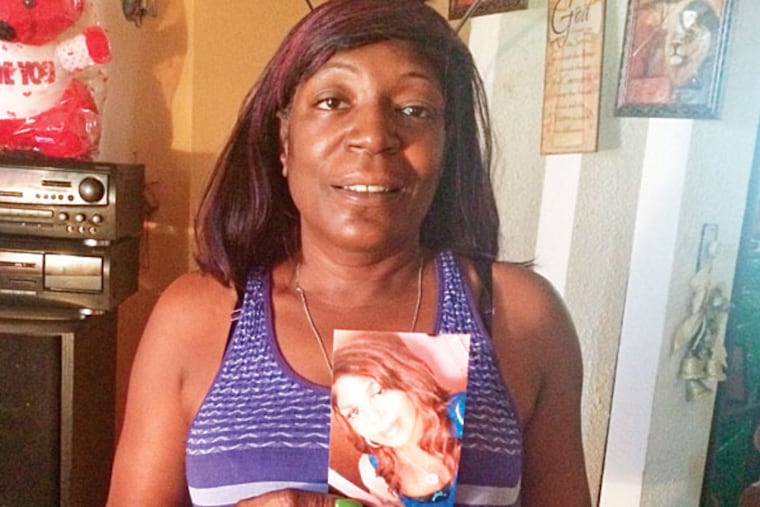Pa. prisons overhaul policies for transgender inmates
Over the last few months, unusual missives began arriving in the post office box of the Hearts on a Wire Collective, a grassroots collaboration between transgender people who meet weekly at the William Way LGBT Community Center in Philadelphia and transgender prison inmates around the state.

Over the last few months, unusual missives began arriving in the post office box of the Hearts on a Wire Collective, a grassroots collaboration between transgender people who meet weekly at the William Way LGBT Community Center in Philadelphia and transgender prison inmates around the state.
"We started getting letters from folks on the inside saying, 'I just had this bizarre conversation I never expected to have,' " said Adrian Lowe, one of the organizers. "People were saying, 'They just asked me if I needed a bra! I'm so excited.' Or, 'I ordered lipstick, and I didn't get sent to the hole!' "
For transgender women housed in men's prisons around Pennsylvania - a small but deeply vulnerable group, including those who say they've been sexually harassed, assaulted, and raped while in state custody - the rules have quietly changed.
In a series of policy updates to bring the state into compliance with the federal Prison Rape Elimination Act (PREA), the state in June created new commissary lists to allow transgender inmates to buy things like makeup and barrettes or gender-appropriate underwear, and rescinded its policy prohibiting sex-reassignment surgery for inmates. And this month, it instituted a new assessment process to determine where transgender inmates should be housed.
Any reforms would be an improvement, said John Hargreaves, director of volunteers for the Pennsylvania Prison Society, who has heard from transgender inmates fearful for their safety.
"They're obvious targets," he said. "They're singled out for being a distinct population." There are 137 transgender people in the Pennsylvania prisons. Of those, 14 transgender men are housed in women's prisons; the policy updates also apply to them.
Currently, all inmates are housed in facilities that correspond to their genders assigned at birth, said Shirley Moore Smeal, executive deputy secretary of corrections.
The only option to be separated from the general population would appear to be solitary confinement, known as the Restricted Housing Unit, Hargreaves said. "RHU is not the best place to be. And that's their option now."
The state's updated Prison Rape Elimination Act policy states that administrators will consider "whether a placement would ensure the resident's health and safety, and whether the placement would present management or security problems." Gender-variant inmates could not be forced into solitary confinement solely because of their gender. And whether the inmates believed they were in danger should be given "serious consideration."
Also under the new policy, transgender inmates must be allowed to shower separately; currently, some older prisons in the state still have communal showers.
Smeal said the new policy might not result in any transgender inmates' being relocated.
"I wouldn't say [anyone is] likely to be moved," she said. "I would say, based on their risk-assessment tool and the interview that was done, they are where we believe they should be."
She added that she was not aware of any transgender inmates currently in isolated "administrative custody" for protective reasons (although inmates can also be sent to RHU for disciplinary purposes).
Still, Valerie Burton of Southwest Philadelphia said her daughter, Niara, born Herman Burton, had spent much of her prison term in the RHU. Niara has long taken hormones and has a feminine appearance; she says she has been raped and beaten in the state prison.
She had been a prostitute, and she pleaded guilty in a grisly 2010 murder and arson. But Valerie Burton said that didn't cancel out the state's responsibility to protect Niara in custody.
"I'm scared I'm going to get a call my child is dead," she said. "My understanding is they're supposed to take care of her."
Angus Love, executive director of the Pennsylvania Institutional Law Project, said his nonprofit was working on two cases in which transgender inmates in Pennsylvania were allegedly abused by male guards and inmates.
In one, he said, a transgender woman was forced to walk around naked and was later sexually assaulted.
Pennsylvania is behind the curve on this issue, he said, but the policy updates represent an important step.
"Generally, the trends are going toward recognizing this as a legitimate issue," Love said. "The acknowledgment that PREA covers transgenders is a step in the right direction."
Prisons and jails across the country have likewise been wrangling with how to manage transgender inmates.
San Francisco announced in September that its county jails would house inmates based on gender.
Meanwhile, the U.S. Department of Justice weighed in to support a lawsuit by a transgender inmate in Georgia who said the state had acted illegally in denying her hormone treatments.
Lowe, of Hearts on a Wire, said just being able to access gender-appropriate items in a commissary felt like a victory.
But when it comes to housing, he said, "we don't know how this is going to play out."
Smeal said the department had consulted with experts and was taking policy reforms seriously.
But, she added, "we've always, through the intake process, determined the needs of the offender and tried to meet those needs."
215-854-5053@samanthamelamed